Let's Talk with Diane A.S. Stuckart
Mining the Golden Age

A while back I wrote about the virtual book club I had joined through my local Sisters in Crime chapter. Our focus has been on female mystery authors, primarily those who started writing during the so-called Golden Age of detective fiction (though we’ve expanded to include authors whose careers began as late as the 1960s). So far, we’ve read and discussed books by such names as Mary Roberts Rhinehart, Margery Allingham, Victoria Holt, Phyllis A. Whitney, Dorothy Gilman, and Dorothy L. Sayers. While a few of these authors have been “go-to” reads for me, I’m admittedly not as familiar as I should be with the others, and so I’ve enjoyed the introduction to their classic works.
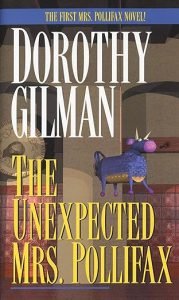 But our group members are not just readers. We are also all writers, and so a large part of our discussion centers on whether or not these vintage plots and stylistic choices hold up for today’s book lovers. In some cases, yes. We all agreed that Dorothy Gilman’s The Unexpected Mrs. Pollifax (1966) and subsequent entries in the series are fun, fast-paced, and well-plotted books. The international settings are compelling, and it’s interesting to compare the Cold War situation with today’s politics. With a likeable sleuth and interesting secondary characters these are just the sort of stories contemporary readers look for.
But our group members are not just readers. We are also all writers, and so a large part of our discussion centers on whether or not these vintage plots and stylistic choices hold up for today’s book lovers. In some cases, yes. We all agreed that Dorothy Gilman’s The Unexpected Mrs. Pollifax (1966) and subsequent entries in the series are fun, fast-paced, and well-plotted books. The international settings are compelling, and it’s interesting to compare the Cold War situation with today’s politics. With a likeable sleuth and interesting secondary characters these are just the sort of stories contemporary readers look for.
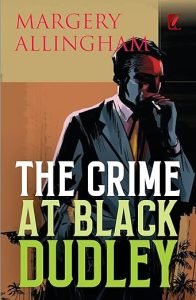 On the other hand, we were less impressed with Margery Allingham’s The Crime at Black Dudley (1929); this despite the fact it has made numerous “best of” lists over the years. True, the book was well-written and incredibly atmospheric. Moreover, this was the debut appearance of her iconic detective, Albert Campion. But we found the plot overly complicated with a major deus ex machina turn that made us roll our eyes. And discovering the murderer’s identity was more a matter of elimination than deduction for the reader, while his motivation for the killing was unbelievable, to put it nicely. But we did agree that the original target audience who likely read at a leisurely pace probably appreciated the story aspects we found problematic.
On the other hand, we were less impressed with Margery Allingham’s The Crime at Black Dudley (1929); this despite the fact it has made numerous “best of” lists over the years. True, the book was well-written and incredibly atmospheric. Moreover, this was the debut appearance of her iconic detective, Albert Campion. But we found the plot overly complicated with a major deus ex machina turn that made us roll our eyes. And discovering the murderer’s identity was more a matter of elimination than deduction for the reader, while his motivation for the killing was unbelievable, to put it nicely. But we did agree that the original target audience who likely read at a leisurely pace probably appreciated the story aspects we found problematic.
The novel – especially the mystery novel – is a constantly evolving form of entertainment. Do you enjoy dipping into the classics, or do you prefer sticking with recently published mysteries? Comment below for a chance to win a mass market paperback of PEACHES AND SCHEMES, 3rd in the Georgia B&B mystery series.
While you’re here, check out our July Contest with two full length books going to one person. The contest runs from July 1-22, so enter right away! CLICK HERE for the contest.
Want to learn more about Author Diane A.S Stuckart? Visit her WEBSITE
Posted in Let's Talk, with Diane A.S. Stuckart • Tags: Diane AS Stuckart, Dorothy Gilman, Let's Talk, Mining the Golden Age, Peaches and Schemes | 32 Comments


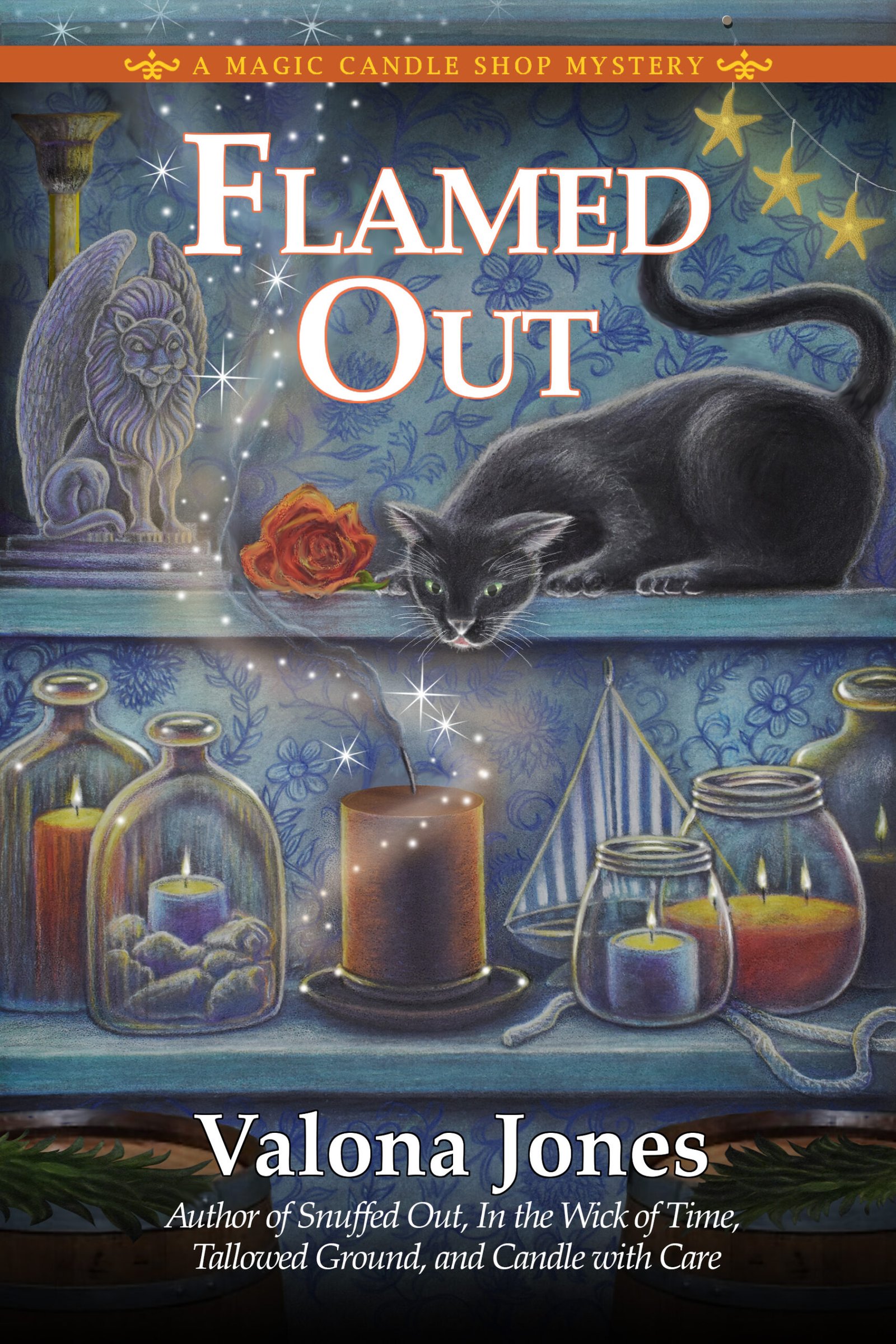
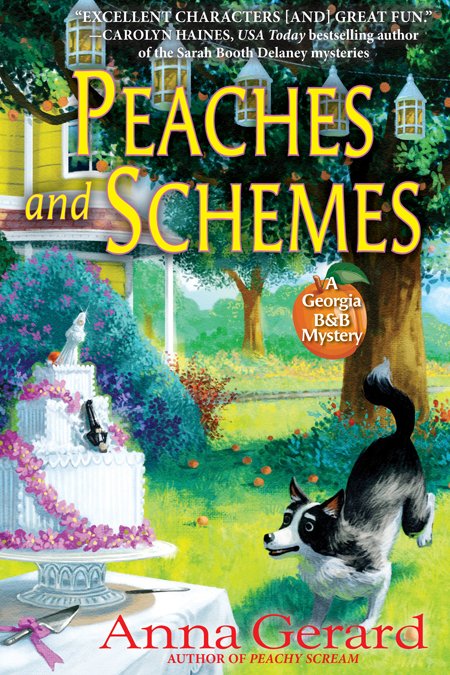
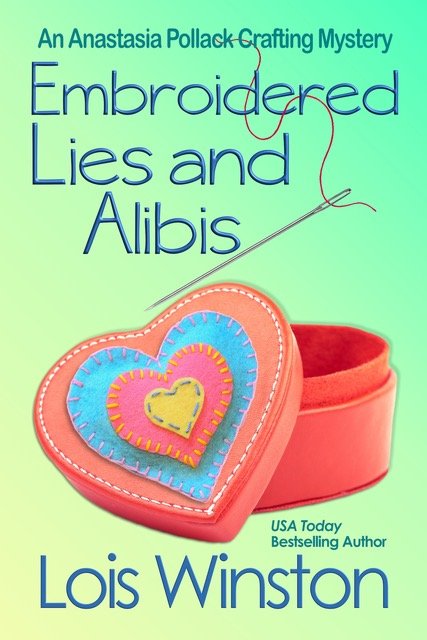


Occasionally, I will reach for a classic for example or because it is an author I never read, but for the most part, I prefer reading more contemporary writers- my sinkt to keep up with the influx of books and authors.
Debra, I understand. I am also way behind on reading contemporary authors that I really should be familiar with. Reading could easily be a fulltime job!
I usually read new books but now you’ve got me interested in these older ones. Thanks for adding to my TBR list.
Carol, I’m glad your post piqued your interest. Our next books are by Josephine Tey. 🙂
Oops, of course I meant *my post*.
Hi Diane! At least once a year, I reread a familiar classic. This year it will be STILL LIFE by Louise Penny.
Hi Cheryl — I’ve not read that one so will give it a look. 🙂
I usually prefer more contemporary authors because I find the writing styles of many classic books problematic. You’re so right about novel writing having evolved considerably over the last 100+ years. I will occasionally pick up a classic I never got around to reading. Some I’ve enjoyed. Others strike me as never standing a chance of publication if they were submitted today. But those books did pave the way for today’s authors and should be looked at more in context of the times in which they were written.
Lois, yes, those books were the building block for today’s novels. Context definitely is important. We’ve been rather shocked a few times by some blatant misogyny and racism in a few of the stories that would not have caused an eye to blink during the actual time the books were written. :0
I tend to like current fiction best. I like strong female protagonists who know how to work the system to get what they need. Plus, all my reading these days is electronic. Are the classics in ebook format? If so, I would be willing to try some if they were recommended by contemporary authors.
Maggie, most of these books are available electronically…or if not, available used via eBay or other sources. And many of the “classic” classics have been reprinted recently.
There are times I will go back to older mysteries that I don’t really consider classics, but they are classic favorites for me. To be honest, most of my reads are the newer mysteries.
Becky, I have certain authors from the 60s/70s I go back to when I need a comfort read. Except for some contemporary references I’m glad to say they seem to hold up after all this time.
I read many of the classics years ago. There are so many good books out now that I don’t have time to return to the oldies but goodies. Also I’m afraid some of my favorites won’t hold up to my rereading them. I don’t want to be disappointed!
Pat, you’re right, there are only so many hours in the day for reading. And, unfortunately, I have to admit there are a couple of my romances from the 90s that would need a rewrite to be accepted today.
I always end up reading contemporary authors… I have numerous classics in my Kindle library, mostly because I *think* I should read tgem. However, every time I have the opportunity to choose a new mystery to read, inevitably, I pick a contemporary cozy 🙂
Maria, LOL, I know what you mean by “think” you should read. As an author I feel I should be familiar with every author, classic or contemporary, but it’s a losing battle to keep up!
I’m reading an older mystery now, and the beginning is all exposition. I don’t know that this would wash with modern readers who have less patience with long descriptive passages or a lack of Show, Don’t Tell. For myself, I prefer more action and dialogue than exposition.
Nancy, I agree with you. I can see in my own writing that I was influenced by authors from the 60s/70s and I have to work hard to keep that exposition in check!
I usually stick to newly published but if something old catches my interest I will at least try it. If I can’t get into it I won’t finish.
Holly, I agree. Sometimes it IS tough slogging thru the first couple of chapters of a “vintage” book to get to the good part. 🙂
I love both new books and the classics.
Laura, me, too…I think a lot of us do. 🙂
Thanks for the giveaway opportunity!
You are very welcome. 🙂
I’ve always enjoyed classic mysteries. My library even has some in the new books section, such as Dolores Hitchens (cat theme) and the British Library Crime Classics. I started reading Agatha Christie, Ngaio Marsh, Mary Roberts Rinehart, and Dorothy L. Sayers when I was a teenager. I have a bunch of their books. My mother introduced me to Mrs. Pollifax and Father Brown. I read all the original Sherlock Holmes stories so I collect Sherlock books written by modern authors.
Michelle, you’re obviously a classic mystery fan. Isn’t it great that some publishers are reprinting these books for today’s audience?
When I was much younger I read Agatha Christie, Ngaio Marsh, Mary Roberts Rinehart, and Dorothy L. Sayers as well as Sherlock Holmes but mysteries were not my prmary interest. I’ve become a devoted fan of cozy mysteries during the past 10 years and I just don’t have enough time to keep up with all the wonderful new authors.
Thanks for being a cozy mystery fan…we appreciate you!!
I enjoy reading current cozies and older cozies from those series!
Linda, there’s nothing better than finding a new-to-you author and finding out there’s a whole backlist of their books still to enjoy. 🙂
Congratulations to sidlaw0425 who won the random drawing for a copy of PEACHES AND SCHEMES.